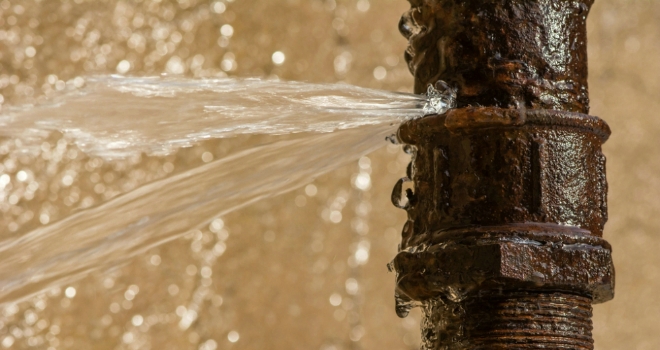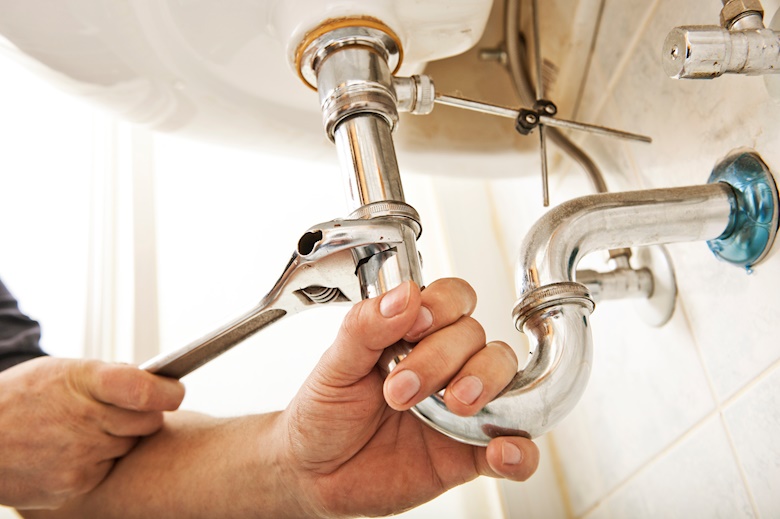5 Regular Water Leak Sources
5 Regular Water Leak Sources
Blog Article
Do you find yourself on the lookout for facts about Where to Find Water Leaks?

"Be careful of little costs. A tiny leakage will certainly sink a fantastic ship." - Benjamin Franklin.
He could not have been extra appropriate because water leakages in our houses cause a waste of sources, raising our water expenses. Although this increase could appear minimal in the beginning, it can bring about considerable costs that can damage your bank. In addition to a rise in bills, water leaks likewise trigger unwanted organic development, architectural damage, and also electric dangers.
If you have a water leak isn't always very easy due to being not able to see most of the pipework in your home, figuring out. If you have had an increase in your water bills lately, observed water spots on ceilings as well as walls, smelt lousy smell, and so on. You may wish to think about requesting plumbing solutions to get it looked into.
There are a number of reasons for water leakages, and we have compiled the common factors below. Inspect to see if you have actually had related concerns in your home lately.
Clogged drains
Food fragments, dust, as well as oil can trigger clogged drains pipes and also obstruct the passage of water in and out of your sink. If undealt with, boosted stress within the seamless gutters can end as well as trigger an overflow up splitting or breaking pipelines. To avoid blocked drains pipes in your home, we advise you to avoid putting fragments down the tubes and routine cleaning of sinks.
High water stress
You observed your home water stress is greater than common however after that, why should you care? It's out of your control.
It would be best if you cared because your average water stress need to be 60 Psi (per square inch) as well as although your home's plumbing system is developed to withstand 80 Psi. A boost in water stress can place a stress on your residence pipes and also cause splits, or worse, ruptured pipes. If you ever see that your house water stress is higher than normal, get in touch with an expert concerning controling it.
Deterioration
As your pipework grows older, it obtains weaker and also more vulnerable to rust after the constant flow of water via them, which can eat away at pipes as well as cause cracks. A visible sign of corrosion in your home plumbing system is staining as well as although this could be difficult to spot as a result of most pipes hidden away. We advise doing a constant examination every couple of years and also transform pipes once they are old to ensure a sound plumbing system
Deteriorated pipe joints
Pipe joints are the parts of our plumbing system where the pipes connect. They are the weakest factor of our plumbing system. Because of this, they are extra prone to damage. It is necessary to note that despite the fact that pipes are created to endure stress as well as last for a while, they weren't created to last forever; for that reason, they would certainly weaken in time. This deterioration can cause cracks in plumbing systems. A common indicator of damaged pipe joints is too much noise from faucets.
Busted seals
One more root cause of water leaks in residences is damaged seals of residence appliances that use water, e.g., a dishwasher. When such home appliances are set up, seals are installed around water adapters for easy passage of water with the machine. A broken seal can trigger leak of water when in use.
With little or no understanding of plumbing, comprehending your residence's plumbing system enough to fix several of these concerns (without effect) can be an inconvenience. Get in touch with plumbing specialists in Pittsburgh, Providence, Rochester, and also environ today, as well as they'll make those concerns go away.
He couldn't have been much more best since water leaks in our residences result in a waste of sources, increasing our water expenses. If you have had a boost in your water bills lately, observed water stains on walls and ceilings, smelt poor odor, etc. An increase in water stress can put a pressure on your home pipes as well as lead to splits, or worse, ruptured pipes. One more reason of water leakages in residences is damaged seals of house devices that utilize water, e.g., a dishwashing machine. When such appliances are mounted, seals are set up around water adapters for simple passage of water with the machine.
5 TIPS IN DETECTING A WATER LEAK IN YOUR HOUSE
Water leaks can be hard to find in your home, yet they can be so common. We rely on water every day in our home, which is why a leak can cause big problems. By detecting them early, you can save money and further damage, getting the problem fixed as soon as possible. Here are 5 tips to help you detect a water leak in your home, so you can contact a plumber straight away and get the issue sorted.
Check your water meter
Many people underestimate the value of the water meter in their home. It can be one of the best ways to tell if you have a leak early on, so you can get on top of it before issues start arising. Start by turning off all the water in your home: taps, washing machine, dishwasher, etc. Now take a look at the meter – if it’s still changing with everything turned off, it’s likely you have a fast-flowing leak that you need to get on top of straight away. If nothing changes, then leave your meter for an hour or two and come back to it. Did it change in this time? It’s likely you have a slower leak, which isn’t as urgent but still handy to get fixed so it doesn’t become a bigger problem.
Keep an eye on your bill
Another good way to detect a leak in your home is by keeping an eye on your water bill. It helps if you have a past bill from the same period of time. You can compare like for like and determine whether your water usage has increased significantly. If it has, there may be a leak in your system that you haven’t picked up before. A professional plumber can check through all of your pipes and determine where it is coming from.
Look for damage
If you have a leak inside your home, you will notice damage over time. Take a look at your showers and bathtubs and note whether any of the tiles surrounding the area seem to be discoloured or damaged in any way. There may be water stains, mould or peeling material that has resulted from a build up of moisture over time. Make sure you take a look under sinks at the back of cupboards that don’t get accessed regularly. This is where damage can go unnoticed and build up over periods of time.

I ran across that blog entry about How to Find and Prevent Water Leaks in Your Home while doing research the web. Those who appreciated our blog post kindly don't forget to share it. Thanks so much for taking the time to read it.
Best results? Dial! Report this page